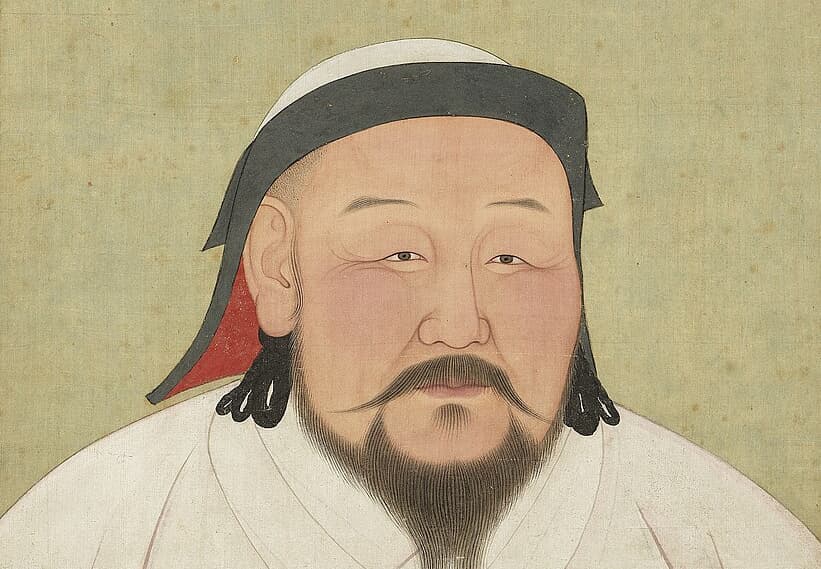Poem of the Day: ‘Kubla Khan’
This is the voice of poetry itself.

This is the voice of poetry itself. The musicality of the opening lines, the magisterial diction of the second stanza, the prophet’s tone in the third stanza, the enchantment, the sense of spinning meaningful images just beyond us, like angels or demons dancing in the open air a few feet off the far cliff-edge of meaning’s terrain: There are reasons “Kubla Khan” is consistently ranked among the greatest poems in the English language. It roots draw on the deepest waters of poetry.
Not that the poem was thought so when it was first appeared, with critics at the time generally disliking it. Samuel Taylor Coleridge (1772–1834) himself was uncertain about it, writing the poem in 1797 but not publishing it until 1816 (at Lord Byron’s insistence). His doubts seemed to have stemmed in part from the irregular meter, three to five beats per line, as though the text were a draft of something unfinished. Even more, however, it stemmed from a worry that the sections of the poem did not cohere.
In a sense, that’s fair enough. The poem does not hold to the traditional poetic unities in a way that would match, say, Coleridge’s long narrative poems “The Rime of the Ancient Mariner” and “Christabel,” or even “Frost at Midnight,” Coleridge’s hymn to fatherhood (and a Poem of the Day last fall).
The actual coherence of “Kubla Khan” lies somewhere else: a place worth exploring in honor of Coleridge’s October 21 birthday. One way to appreciate the poem is not to be distracted by the framing device of incompleteness that Coleridge erected around the poem. That story is well known: The poem began in a dream, he said, drug-induced, that promised a long set of verses, but the visit of “a person from Porlock” interrupted the composition, and the poem had fallen away to fragments by the time Coleridge returned to it.
We should concentrate instead on the strange movement of the poem. Coleridge opens with the stately pleasure dome, a human creation that encapsulates nature. But in the second stanza, the chasm in the dome blows up, casting rocks into the air and rerouting the sacred river — “And ’mid this tumult Kubla heard from far / Ancestral voices prophesying war!”
The “miracle of rare device, / A sunny pleasure-dome with caves of ice”: What are we to make of it? Coleridge, without introduction or explanation, points us to a woman he once heard playing a dulcimer — and declares that “Could I revive within me / Her symphony and song,” he too could “build that dome in air. / That sunny dome! those caves of ice!”
But just as tumult came to Kubla Khan’s dome, so something lurks in threat for the man who would, if he could, use his art to create a new human capsule of nature. “Weave a circle round him thrice, / And close your eyes with holy dread, / For he on honey-dew hath fed, / And drunk the milk of Paradise.”
Kubla Khan
Or a Vision in a Dream. A Fragment
by Samuel Taylor Coleridge
In Xanadu did Kubla Khan
A stately pleasure dome decree:
Where Alph, the sacred river, ran
Through caverns measureless to man
Down to a sunless sea.
So twice five miles of fertile ground
With walls and towers were girdled round:
And there were gardens bright with sinuous rills,
Where blossomed many an incense-bearing tree;
And here were forests ancient as the hills,
Enfolding sunny spots of greenery.
But oh! that deep romantic chasm which slanted
Down the green hill athwart a cedarn cover!
A savage place! as holy and enchanted
As e’er beneath a waning moon was haunted
By woman wailing for her demon lover!
And from this chasm, with ceaseless turmoil seething,
As if this earth in fast thick pants were breathing,
A mighty fountain momently was forced:
Amid whose swift half-intermitted burst
Huge fragments vaulted like rebounding hail,
Or chaffy grain beneath the thresher’s flail:
And ’mid these dancing rocks at once and ever
It flung up momently the sacred river.
Five miles meandering with a mazy motion
Through wood and dale the sacred river ran,
Then reached the caverns measureless to man,
And sank in tumult to a lifeless ocean:
And ’mid this tumult Kubla heard from far
Ancestral voices prophesying war!
The shadow of the dome of pleasure
Floated midway on the waves;
Where was heard the mingled measure
From the fountain and the caves.
It was a miracle of rare device,
A sunny pleasure-dome with caves of ice!
A damsel with a dulcimer
In a vision once I saw;
It was an Abyssinian maid,
And on her dulcimer she played,
Singing of Mount Abora.
Could I revive within me
Her symphony and song,
To such a deep delight ’twould win me,
That with music loud and long,
I would build that dome in air,
That sunny dome! those caves of ice!
And all who heard should see them there,
And all should cry, Beware! Beware!
His flashing eyes, his floating hair!
Weave a circle round him thrice,
And close your eyes with holy dread,
For he on honey-dew hath fed,
And drunk the milk of Paradise.
___________________________________________
With “Poem of the Day,” The New York Sun offers a daily portion of verse selected by Joseph Bottum with the help of the North Carolina poet Sally Thomas, the Sun’s associate poetry editor. Tied to the day, or the season, or just individual taste, the poems are drawn from the deep traditions of English verse: the great work of the past and the living poets who keep those traditions alive. The goal is always to show that poetry can still serve as a delight to the ear, an instruction to the mind, and a tonic for the soul.
